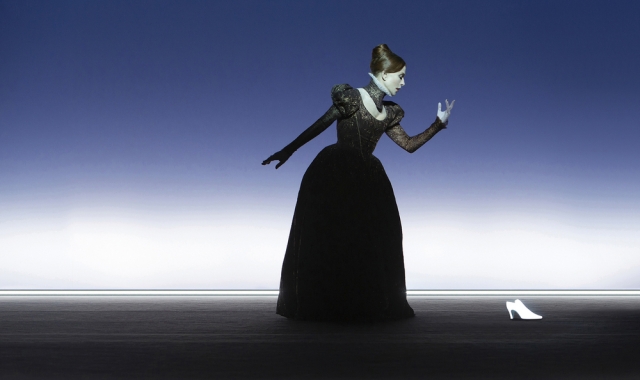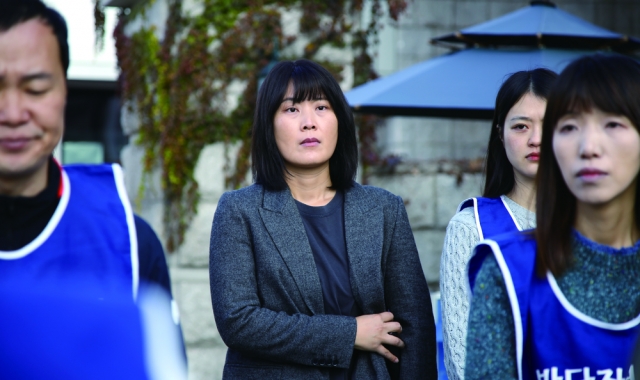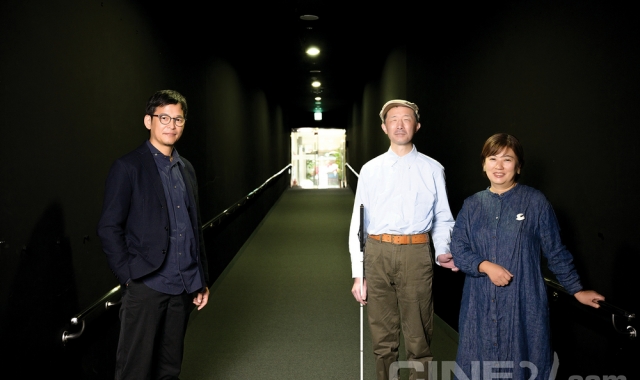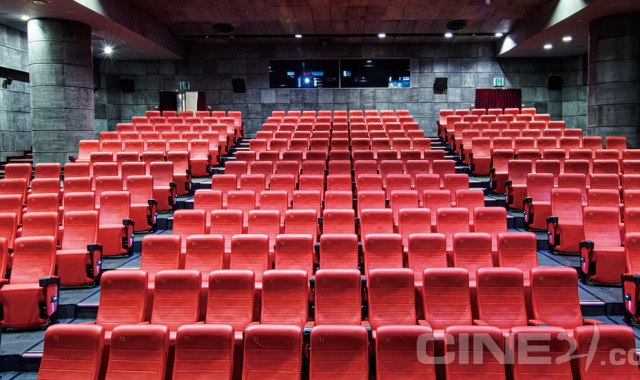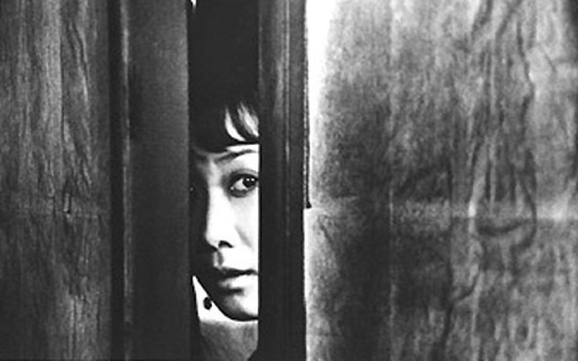
모든 예술 중에 영화가 가장 무정한 애인이다. 영원한 젊음을 끊임없이 추구하면서 무자비하게 커리어와 유행과 명성을 저버리니 말이다. 거액의 돈이 걸리고 제작과 배급의 복잡한 형태가 있으니- 경제적으로 살아남기 위해서 계속적으로 이 유행 저 유행의 파도들을 타고 다니면서- 그럴 수밖에 없다. 지속적인 자극 없이는 그 어떤 나라의 영화도 활력을 잃고 속으로 죽어간다. 그렇지만 시쳇더미가 점점 더 커져가는 가운데 기억과 공식 역사기록은 이상한 장난을 칠 수 있게 된다.
지난 몇달간, 필자가 30여년 동안 쌓아놓은 아시아영화 및 기념자료들을 재정비하면서 이 생각이 새삼스러운 힘을 갖고 덮쳐왔다. 그중 여러 편은 구할 수 없게 된 것도 있지만, 각각의 영화는(가장 쓰레기 같은 것에서부터 가장 예술적인 것까지) 그 시대에 대한 생생한 기억을 되살려줬다. 예컨대 잠시 뜨겁게 타올랐던 커리어나 영화 또는 한 영화계의 좀더 넓은 진화에 기여했던 지나가는 트렌드 등을 떠오르게 했다.
동아시아에서 중국영화보다 더 파란만장한 역사를 지닌 영화사는 없다. 30여년 전, “중국영화”라는 말은 오칭이었다. 본토영화(당시 문화혁명 때 거의 멸종했던 것)가 있었고, 홍콩영화(이소룡과 쿵후물들 때문에 국제적 인기를 누리고 있었던 것)가 있었고, 대만영화(주로 멜로드라마와 반공영화들을 제작하면서 거의 동아시아 밖에선 안 알려진 것)가 있었다.
중국이 1970년대 고래처럼 가슴을 부풀리고 햇볕을 쬐고 있을 때, 홍콩과 대만영화는 그 덕을 보면서 생계를 꾸려나갔다. 전자는 아시아에 걸쳐서 더 멀리까지 자본주의 가치관을 공격적으로 팔면서 그랬고, 후자는 스스로 전통적 중국 문화와 가치를 수호하는 역할을 취하면서 그랬다. 1980년대 중국이 서서히 정치·경제적으로 개방하기 시작하면서, 이 두 “해외” 업계 내 커리어들이 잠시 떠오르거나 연장됐다. 단지 두 가지 예만 든다면, 홍콩 감독 중 당서선 감독이라고, 정치적으로 논란을 일으켰던 본토중국을 배경으로 한 (그러나 대만에서 찍은) 드라마이며 불안에 떤 홍콩 정부가 13년간 금지한 <중국이여 안녕>(1974)을 연출한 감독을 지금 기억하는 이가 있는가?(그녀는 그전에 현대 중국영화의 최초 “예술영화”를 만들었는데- 아름답고 느리게 타오르는 흑백 의상 로맨스물 <동부인>(1968)- 이것 또한 요즘 거의 잊혀지고 관람되지 않고 있다.) 그리고 온갖 중국 공동제작 열기의 와중에 1980년대에 선견지명으로 일련의 역사드라마로 길을 텄던 베테랑 감독- 본토 태생으로 홍콩에 본거지를 둔 이한상 감독이 사실상 있었다는 것을 아직 기억하는 이가 있는가?
대만에서는 1980년대 초·중반, 젊은 감독들의 뉴웨이브가- 대부분 미국에서 영화공부를 한 이들로- 갑자기 그 섬나라 영화업계를 국제적 주목의 대상으로 만들었다. 그중 두명의 커리어만 살아남아 역사책에 들어갈 수 있었고- 이는 에드워드 양과 허우샤오시엔 감독- 다른 많은 이들은 만인 감독이나 진곤호 감독, 증장상 감독, 장의 감독, 우간평 감독 등과 같이 그 10년간 대만영화의 범위를 확장하는 데 중요한 역할을 한 이들도 있다. 그리고 ‘뉴 타이완 시네마’가 번성할 수 있는 토양을 마련해주는 데 있어서 리처드 첸 감독이나 임정개, 왕국금 감독과 같은 이들은 역사가 돌려준 것보다 더 많은 인정을 받아 마땅하다.
현대 한국영화의 역사는 아직도 쓰이고 있다. 그러나 “주요 이름들”의 공식 경전은 서서히 형성되고 있으며, 멋지게 될 가망성이 있는 커리어 중(정지우, 장윤현, 이영재 감독 등) 가능성을 실현할 수도 안 할 수도 있는 것들도 이미 있는데다가 개별적으로 즐거운 영화 중(<비디오 보는 남자> <길> <굳세어라 금순아> 등) 이미 대중의 기억 속에서 사라져가고 있는 것도 있다. 그러니까 부가 홈엔터테인먼트가 있어 다행이다(이는 공식 역사와 영화 자체의 카사노바 본능의 쌍둥이 횡포에 대한 유일한 방호 수단이다).
SUNS, MOONS AND SHOOTING STARS
Of all the arts, cinema is the most heartless lover, ruthlessly discarding careers, fashions and reputations in its ceaseless quest for everlasting youth. With large amounts of money at stake, and complex forms of production and distribution, it has to be so - perpetually riding this or that wave of fashion to survive economically. Without constant stimulation, any country's cinema languishes and dies inwardly. But as the pile of corpses grows ever larger, memory and official history can be allowed to play strange tricks.
The thought has struck me with renewed force these past few months while reorganising my collection of Asian movies and memorabilia built up over 30-odd years. Many of the films are now unavailable, but each title (from the trashiest to the artiest) has revived a vivid memory of the time: a career or movie that briefly burned hot, a passing trend that contributed to a cinema's broader evolution.
In East Asia, none has had a more tempestuous history than Chinese cinema. Thirty-odd years ago, the term "Chinese cinema" was a misnomer: there was Mainland cinema (then almost extinct during the Cultural Revolution), Hong Kong cinema (enjoying international popularity thanks to Bruce Lee and chop-sockies) and Taiwan cinema (mostly producing melodramas and anti-communist movies, and hardly known outside East Asia).
As China heaved and basked like a huge whale during the 1970s, Hong Kong and Taiwan cinema made a living off its back - the first aggressively selling capitalist values through Asia and beyond, the second
Positioning itself as a self-appointed guardian of traditional Chinese culture and values. And as China slowly started to open up politically and economically during the 1980s, careers were briefly made or extended within these two "offshore" industries.
To give just two examples, who now remembers a Hong Kong director called Shu Shuen (Tang Shu-hsuan), who the politically controversial, Mainland-set (but Taiwan-shot) drama, "China Behind" (1974), banned for 13 years by a nervous Hong Kong government? (She'd previously made modern Chinese cinema's first "art movie" - the beautiful, slow-burning B&W costume romance, "The Arch" (1968) - also virtually forgotten and unseen nowadays.) And amid all the China co-production fervour, who still remembers that it was actually a veteran director - Mainland-born, Hong Kong-based Li Han-hsiang - who during the 1980s far-sightedly led the way with a series of historical dramas?
In Taiwan, during the early/mid-1980s, a New Wave of young directors - most of whom had studied film in the U.S. - suddenly brought the island's industry to international prominence. The careers of only two have survived to enter the history books - Edward Yang and Hou Hsiao-hsien - but many others, like Wan Jen, Chen Kun-hou, Tseng Chuang-hsiang, Chang Yi and Yu Kan-ping, played important roles in briefly extending the range of Taiwan cinema during that decade. And in preparing the ground for New Taiwan Cinema to flourish, directors like Richard Chen, Lin Ching-chieh and Jo Jo Wang (Wang Chu-chin) deserve more recognition than history has brought them.
The history of modern-day South Korean cinema is still being written. However, an official canon of "major names" is gradually forming, and already there have been some potentially beautiful careers (Jung
Ji-woo, Chang Yoon-hyun, Lee Young-jae) that may or may not realise their promise, plus individual pleasures ("Man Watching Video," "Road," "Saving My Hubby") that are already fading from popular memory. So, thank goodness for ancillary and home entertainment - the one safeguard against the twin tyrannies of official history and cinema's own Casanova instincts.
